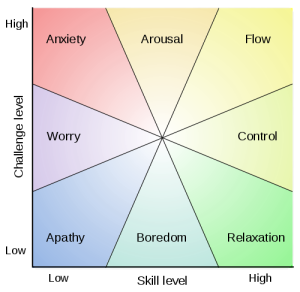- Who We Are
-
Our Work
-
Educational
- Brooks School- George and Evanthea Demoulas Family Boathouse
- Riverbend School - Gym and Schoolhouse
- Lesley University- Animation Studio
- Middlesex School- Bass Arts Pavilion and Danoff Visual Arts Center
- Nashoba Brooks School- Sureau Family Discovery Barn
- The Southport School- Arts and Music Building
- Senior Living
- Hospitality
-
Healthcare
- Partners Urgent Care
- Yale New Haven Health- Medical Office Building
- The Hospital of Central Connecticut - Advanced Wound and Hyperbaric Medicine Center
- Connecticut Children's - Infusion Center and Gastrointestinal Clinic
- Connecticut Children's - Specialty Care Center
- MidState Medical Center- Post-Anesthesia Care Unit Expansion & Renovation
- Commercial
- Specialty Work
-
Educational
- How We Do It
- Our Blog
- Industry Tidbits
- Join Our Family
- Contact Us
TED Talk Tuesday: Flow, the secret to happiness
June 19th, 2014
Money can’t buy happiness.
Once you’re above the poverty level, the percentage of people who are happy remains constant no matter the income level. So how do you obtain happiness? According to Mihaly Czikszentmihalyi, the secret is being in Flow. When you are highly challenged and you have the appropriate skills to tackle that challenge, you are generally most happy. In other words, Flow is doing what you really like to do. The chart below categorizes different states based on challenge and skill level.
What does this mean?
Opportunities to get in Flow come from being in a state of arousal or a state of control. With the former, you have to push yourself to the next level to overcome a challenge. You are out of your comfort zone, because your skills are not quite where they need to be. It is here where you are most likely to learn, because you need to overcome the skill gap. With the latter, you are comfortable but not very excited. You are not being challenged enough.
Empowering Our Employees to Reach FLOW
We are piloting a new Performance Management System. The system is based on performance conversations where the employee checks in with his/her manager. Brief discussions are based on one or two things the employee could be doing better and one or two things the employee would like to be doing. Managers and employees can suggest trying things that challenge the employee to acquire new skills or improve those he/she already has. We want our employees to be in Flow – using their skill sets to do challenging work.
What do you do at work that truly makes you happy?










